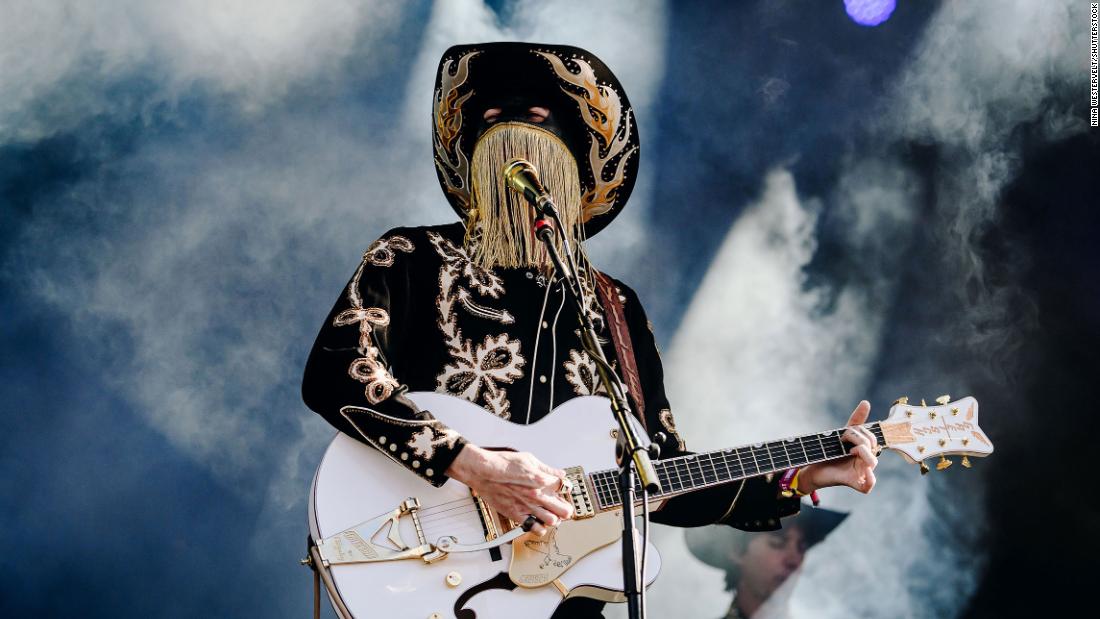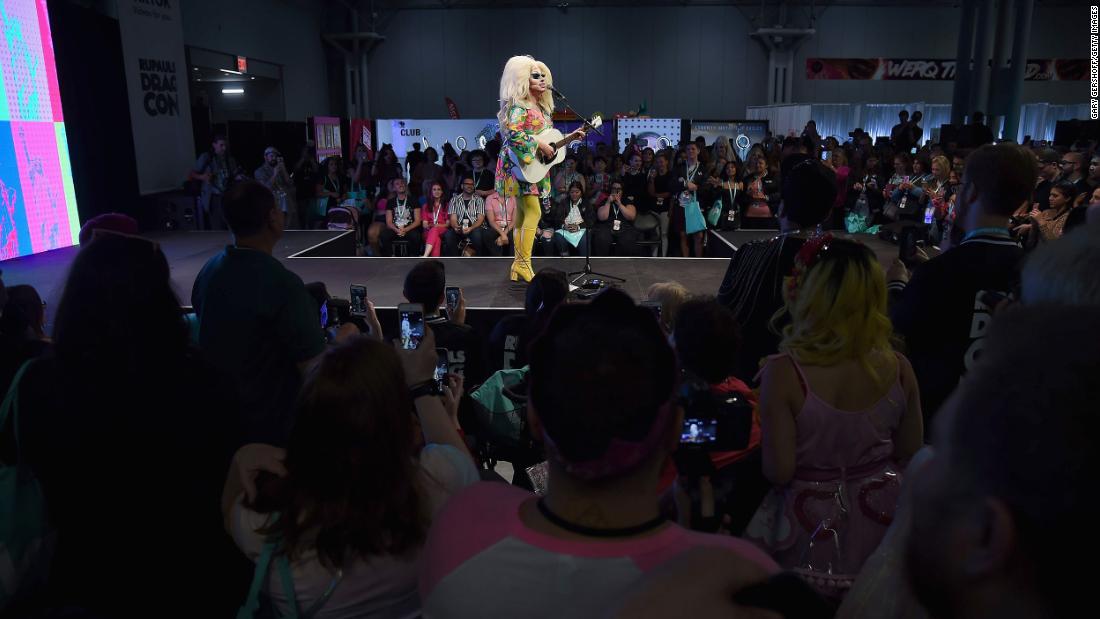
Dolly Parton’s huge blonde mane, Roy Orbison’s signature glasses, Johnny Cash’s all-black attire, and Roy Orbison’s signature specs (and bust, which she likes to joke about before anyone else gets the chance).
Orville Peck wears a cowboy hat with an inverted brim and wears a fringed mask that covers most of his face. You’ll never see him without them, just as Dolly will never be caught without a full face of cosmetics.
Perhaps you’ve heard or seen of Peck, a rising country artist whose song “Euphoria” was featured in HBO’s “Euphoria,” and he was featured in advertising for Beyoncé’s Ivy Park collection last year. He’s hard to miss with his eye-catching accessories, not to mention his acrobatic, Elvis-like voice.
Peck bares all in his songs, despite how little of his face he shows — country music is, after all, only “three chords and the truth,” as composer Harlan Howard memorably observed. Peck sings about the mysterious West, lonely highways, and the ones who have broken his heart in his most heartbreaking songs (or vice versa).
The masked singer told CNN about his songwriting, “I didn’t think of it as an angle or anything truly new at all.” “I just assumed I was doing what everyone else does: writing from the heart.”
“The least intriguing thing about [him] is that he’s gay,” Peck added. But, for fans and musicians working in a field that has traditionally excluded minority performers, seeing him rise without losing any of what makes him so engaging has been inspiring.

Trixie Mattel, “RuPaul’s Drag Race All Stars” winner, is also an accomplished country artist who performs in drag.
Artists like Patrick Haggerty, whose band Lavender Country issued what is largely considered the first country album recorded by an out gay musician in 1973, had their careers cut short by singing gay love songs. Even singers like k.d. lang and Chely Wright, who came out decades later, stated their careers slowed after they made their sexuality public.
Out LGBT persons are now among the most well-known country musicians. Grammy winners Brandi Carlile and Lil Nas X T.J. Osborne, one half of the Brothers Osbourne, became the first openly homosexual singer signed to a major country label when he came out last year. Trixie Mattel, the winner of “RuPaul’s Drag Race All Stars,” does her drag performance with original music influenced by Loretta Lynn and June Carter Cash. Artists like Allison Russell, Amythyst Kiah, and Joy Oladokun, who are Black LGBT, are reaching audiences across genres.
Queer country performers are telling classic stories about first love, loss, and healing from views that were previously ignored by the music industry. The earnestness and evident talent of country’s queer performers are shattering preconceived notions about what country music can be — and who is allowed to perform it.
Peck remarked, “I spent most of my career as an actor trying to be someone I wasn’t.” “I just knew that I could finally be myself… and be the country Western star I’d always wanted to be.”
A (very) brief history of LGBTQ acceptance in the United States
Straight, White, and, especially in the last 15 years or so, men have traditionally been the singers who have made a living off of country music.
According to Nadine Hubbs, a professor of women’s and gender studies and music at the University of Michigan, the recording industry, like most other aspects of American culture in the early twentieth century, was tightly segregated — and country was a “White” genre at the time. (Hubbs is widely regarded as an expert on the intersections of sexuality, class, and race in country music.)
It wasn’t that the country music system purposefully locked LGBTQ artists out like it did Black artists; rather, it was an unspoken rule that artists must remain closed if they want to succeed in any genre, according to Hubbs. For the first several decades of recorded music, there were essentially no out queer country artists, which would have been the death knell for an artist’s career.
But, according to Hubbs, that originated from the industry itself, not from fans or artists. Many notable country musicians, including Garth Brooks, Rascal Flatts, and Kacey Musgraves, have made references to same-sex relationships in their music, albeit such songs were sometimes withdrawn from the radio after their release. But, according to Hubbs, what their music lacked in traditional advertising, it more than made up for it in cultural influence — having allies among country’s top performers is important for emerging musicians and fans.
In the last decade or so, the music industry has bowed slightly to social progress, and country music isn’t necessarily more discriminatory than pop or rap when it comes to LGBTQ inclusion — especially now that artists aren’t required to work with a major label to deliver music to fans, and fans don’t always rely on radio to discover new artists, according to Hubbs.

